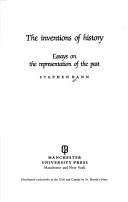
ISBN: 0719032970 Year: 1990 Publisher: Manchester Manchester University Press
Abstract | Keywords | Export | Availability | Bookmark
 Loading...
Loading...Choose an application
- Reference Manager
- EndNote
- RefWorks (Direct export to RefWorks)
Article
Abstract | Keywords | Export | Availability | Bookmark
 Loading...
Loading...Choose an application
- Reference Manager
- EndNote
- RefWorks (Direct export to RefWorks)
Article
Abstract | Keywords | Export | Availability | Bookmark
 Loading...
Loading...Choose an application
- Reference Manager
- EndNote
- RefWorks (Direct export to RefWorks)
Periodical
Abstract | Keywords | Export | Availability | Bookmark
 Loading...
Loading...Choose an application
- Reference Manager
- EndNote
- RefWorks (Direct export to RefWorks)
Periodical
Abstract | Keywords | Export | Availability | Bookmark
 Loading...
Loading...Choose an application
- Reference Manager
- EndNote
- RefWorks (Direct export to RefWorks)
Book
ISBN: 9783943423181 Year: 2017 Publisher: Hamburg Hamburg University Press
Abstract | Keywords | Export | Availability | Bookmark
 Loading...
Loading...Choose an application
- Reference Manager
- EndNote
- RefWorks (Direct export to RefWorks)
The county of Flensburg-Land was founded by the Prussian decree of September 22, 1867. Initially, the former Office Flensburg with its properties, the city of Flensburg, the small town of Glücksburg, the First Anglian Property District ("Erster Angler Güterdistrik") as well as the 'enclaved' county places belonging to the Monastery of St. Johannis belonged to the newly founded county. By the county order of May 26, 1888, the city of Flensburg separated from the district and from then on formed the city of Flensburg with an own county status. Between 1920 and 1944 the stock of the archival material was handed over to the Regional archives of Kiel. Because of the war-related outsourcing, there were only insignificant losses. In 1966 the stock was inspected, rearranged and listed. It was only in 2007 that a further archival exchange with the district archives of Schleswig-Flensburg extended the inventory by a further 150 distribu- tion units. At the same time, the files of the Flensburger Kreisbahn which had previously been kept as separate stock were renumbered and integratd into the main stock in the old order.
Book
ISBN: 9783943423433 Year: 2018 Publisher: Hamburg Hamburg University Press
Abstract | Keywords | Export | Availability | Bookmark
 Loading...
Loading...Choose an application
- Reference Manager
- EndNote
- RefWorks (Direct export to RefWorks)
In the 17th and 18th centuries, Hamburg was one of the strongholds of European Hebrew studies in Hamburg. The Academic Gymnasium, founded in 1613, created professorships for Hebraic studies or - more comprehensively - for Oriental studies. Names like Hermann Samuel Reimarus are associated with them. Some of these teachers also became the main pastors.Graduated exegete of Old Testament and retired main pastor of the all church St. Nikolai of Hamburg Ferdinand Ahuis has investigated the legacies of nine of his predecessors from four centuries with regard to their attitude towards Judaism. In this work, he presents their theological interpretations of the Old Testament which have influenced the Christian view of Judaism.The work concludes with a virtual dialogue between the main pastor and biblical scholar Heinz Beckmann and the rabbi and biblical scholar Benno Jacob.
Book
ISBN: 9783943423211 Year: 2015 Publisher: Hamburg Hamburg University Press
Abstract | Keywords | Export | Availability | Bookmark
 Loading...
Loading...Choose an application
- Reference Manager
- EndNote
- RefWorks (Direct export to RefWorks)
The archival material on the history of the Jewish communities of Hamburg which had been devastated during the Nazi era has been largely preserved. It allows in-depth family history and biographical research in numerous collections of the State Archives of Hamburg. The purpose of this guide is to promote the search for traces aces of the Jews of the past centuries. iNumerous examples provide an insight into the situation of Hamburg Jews during the past centuries.
Book
ISBN: 9783943423334 Year: 2016 Publisher: Hamburg Hamburg University Press
Abstract | Keywords | Export | Availability | Bookmark
 Loading...
Loading...Choose an application
- Reference Manager
- EndNote
- RefWorks (Direct export to RefWorks)
After the occupation of Hamburg by British troops on May 3rd, 1945, the Hamburg University was closed, but reopened on November 6th, 1945 - half a year after the end of the "Third Reich" and the Second World War. On the occasion of the 70th anniversary of this reopening on 6 November 2015, the University of Hamburg took the opportunity to publicly discuss the difficult transition of its own institution from the Nazi dictatorship into the democratic post-war period. This volume of "Hamburger Universitätsreden" documents the four speeches held on this occation.
Book
ISBN: 9783937816890 Year: 2012 Publisher: Hamburg Hamburg University Press
Abstract | Keywords | Export | Availability | Bookmark
 Loading...
Loading...Choose an application
- Reference Manager
- EndNote
- RefWorks (Direct export to RefWorks)
The Augustenburg Duke's lineage (house) rose in the 17th century as a side line of the Princely House of Schleswig-Holstein-Sonderburg. It expired in 1931 in male line. Dept. (Abt.) 22 comprises the Ducal-Augustenburg House Archives (Primkenauer Archive) and the archives of the family branch of the Ducal house residing in Gut Noer. The period of existence extends from the 17th to the 20th century, with a focus on the 19th century. Particularly noteworthy is the extraordinarily important archive material from the period of Schleswig-Holstein's political history, especially concerning foreign and military affairs. In addition, Abbot 22 also contains the archives of the Ducal Government of Schleswig-Holstein (1863-1866). A common register of places, subjects and persons completes this book.

 Search
Search Feedback
Feedback About
About Help
Help News
News